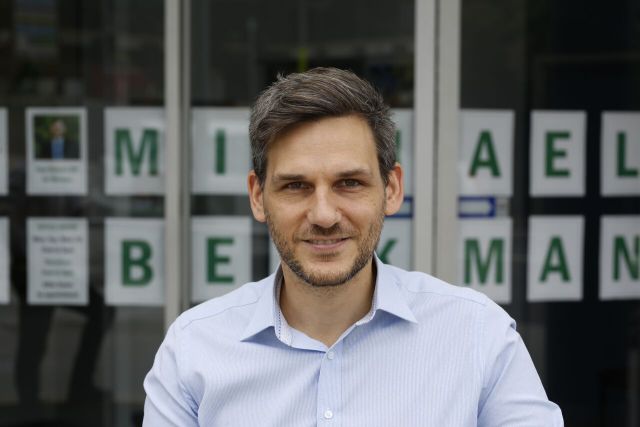
New Greens MP Michael Berkman is looking forward to the opportunity to put Greens policies and values forward as the new member for Maiwar.
He told Green Left Weekly that it was a “hugely significant result” for the Greens to win their first seat in Queensland and a significant increase in their vote in other seats.
“One of the common myths about the Greens is that it is a wasted vote,” he said. And that is a myth he is keen to bust.
“A lot of people don’t understand the preferential system and their sense that a Green is not likely to win makes them disinclined to give Greens their first preference,” he said.
He is hoping that winning a Queensland seat for the first time will give more confidence to people who align with Greens policies and values to vote Green in future.
At the same time, he was at pains to point out that he will be a lone Greens voice in the parliament that has a slim Labor majority. Therefore, when considering priorities where outcomes may be achieved “it will be easiest to focus on those issues where Labor already has some legislative program”.
One such example is donation reform. “The fact that [Labor] has opened up the door and started talking about developer donations is a positive indication, but our policy has been for some time that we need to go much further. All for profit, corporate donations should be banned,” he said.
Berkman said that “there is a much bigger conversation to be had about [political] donations [more generally]” canvassing possibilities that donations could be capped or removed altogether to be replaced with public funding of elections.
When asked about union donations, he said that banning union donations was a “common retort” to the suggestion that corporate donations be banned. However, he said there is a “very real distinction to be drawn between donations coming from singularly profit-driven organisations compared with member-based organisations such as unions and other representative bodies”.
Ultimately, he said, “if we want to get money out of politics altogether … we need to look at some model of public funding of elections.”
Abortion law reform is another issue where “we've already seen some movement from Labor”.
“It’s going to be really important that once the Law Reform Commission has finished its work that Labor moves very quickly on that. It may not be something that we need to drive as a priority, but it certainly should be something dealt with as soon as possible by the new parliament.”
Berkman also raised Treaty and “proper recognition of Indigenous sovereignty” as an issue that should be addressed “in earnest” even if it cannot be resolved quickly. He acknowledged this is something that requires both federal and state engagement, but that it is “really encouraging seeing open acknowledgement in other states” about the need for Treaty.
“There should be no doubt in anyone’s mind that sovereignty has never been ceded and everything that we do in Australia we do on stolen land.”
Berkman is also concerned about the rise of inequality and the disengagement from politics by ordinary people.
“We brought some genuinely transformative policy initiatives to this election,” he said. These include universal housing, tackling the imbalance of power between renters and landlords and cheap and expanded public transport.
Berkman said the Adani coalmine was a powerful issue in the election campaign that crystalised progressive thinking. But it is also emblematic of a “deeply flawed system”.
“The fact that a big corporation like this, irrespective of the public opposition, can continue to garner support of government at the state and federal level is just wrong.
“It just demonstrates that representative democracy is fundamentally flawed in some way”, he said.
“The policy focus of both major parties on corporate concerns means the day-to-day concerns of regular people aren’t being properly addressed.”
When asked about his views on the future of the Greens in light of the public debates in the federal party room, Berkman replied: “I think the most sensible way to characterise these issues is that the party is dealing with growing pains.
“I honestly feel these are essentially questions of emphasis and messaging; I don’t feel there is a dramatic ideological rift within the party.”
He pointed out that now the Greens have state representation in Queensland, there is a need to create internal structures to support that work and ensure necessary lines of communication between the grassroots party and the parliament.
“That presents challenges but none of them are insurmountable.”
Like the article? Subscribe to Green Left now! You can also like us on Facebook and follow us on Twitter.